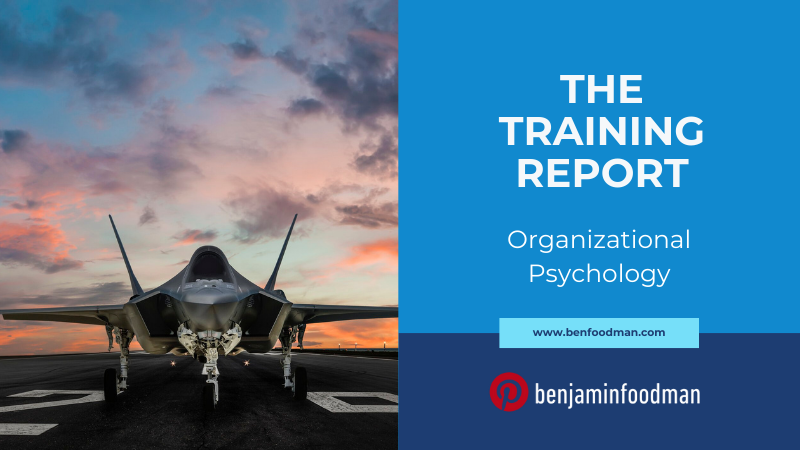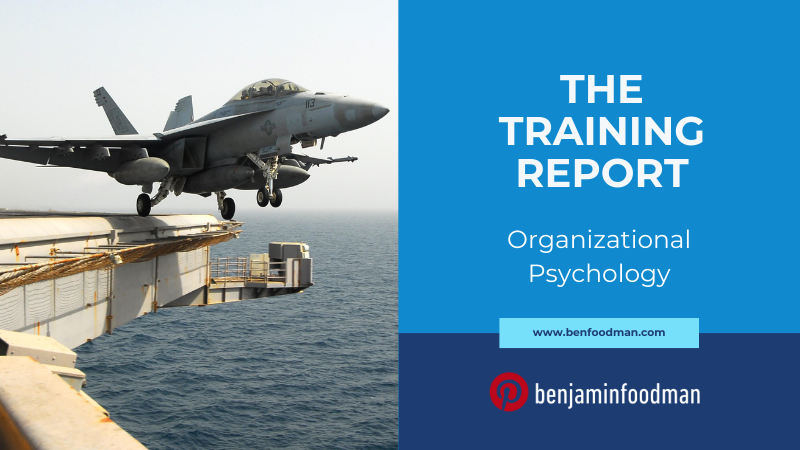Organizational Psychology - Why Business Leaders Should Focus On Corporate Athlete Wellness & Human Centered Approaches
About the Author
Ben Foodman is a licensed psychotherapist & performance specialist. He owns his private practice located in Charlotte North Carolina where he specializes in working with athletes to help them overcome mental blocks (the yips), PTSD, ADD / ADHD and achieve flow states through the techniques of Brainspotting & Neurofeedback. If you are interested in services, use the link here! Enjoy the article below!
Table Of Contents
Introduction: 2 Key Organizational Psychology Strategies To Enhance Corporate Athlete Performance
Oftentimes when business leaders want to enhance the productivity of their work force, they will bring in an organizational psychologist or a motivational speaker to improve this aspect of their teams. Sometimes this can be effective, but other times there are obvious answers that leaders can utilize that are right in front of them. More often than not, the most simple approach is the most effective one.
For this issue of the Training Report I want to take the time to review 2 organizational psychology strategies that business leaders can use to enhance their corporate athlete performance. First we will discuss how business leaders should view corporate athlete wellness and the connection to performance. Finally, we will review what it means to take a human-centered approach when collaborating with team members and how to do this. Let’s dive in!
Part I. Corporate Athlete Wellness & The Connection To High Performance
Oftentimes in sports, you will hear coaches, athletes & sport psychologists refer to the mind-body connection. Even though corporate athletes do not use their bodies in the same way athletes do during sports, this connection is still essential for performance regardless of the domain. One of the biggest mistakes that the private sector and corporate America have made writ large is that most people just view the body as a platform for one’s head. The reality is that this could not be further from the truth.
Your body is an extension of your mind, and how you treat your body will affect how you think. What business and team leaders need to understand is that if you neglect nurturing this part of your corporate athlete’s development, you are missing a key piece in their performance. Leaders either need to invest more time in providing resources for their corporate athletes, or need to find strategies that reward team members for being active in this area of their life.
Part II. Always Be Human Centered In Your Approach As A Leader
What does it mean to be human centered? Some definitions have stated “designing and developing products, services, and systems with the needs and perspectives of the people who will use them in mind. It is a design approach that puts people first and ensures that the final product is both usable and desirable” and while there is some consistency in this definition, I think there is a different way business leaders should consider being human centered in their decision making.
I believe that two key features of being human-centered in one’s approach include actively listening, and focusing on empathy rather than sympathy. The process of actually listening to people takes an extensive amount of investment in energy. It will take significant brain power to do this effectively but will pay off in a big way. Also, exhibiting empathy is more impactful than sympathy because the former shows compassion whereas the latter is having pity for others. Doing both of these things will show your corporate athletes you are invested in them which in turn will increase their motivation to want to work with you.
Part III. How To Apply These Strategies To Corporate Athletes
Applying these organizational and sport psychology-based strategies does not have to be difficult. In terms of implementing corporate athlete wellness approaches, leaders can focus on providing literature with resources that their team members can use, and make it routine to check in on this aspect of their corporate athlete’s lives. This can involve brief check-ins/discussions and even having reward systems for those that demonstrate this commitment to their health.
In terms of being human-centered, when having conversations or surveys with your corporate athletes, try to use more open-ended questions AND do not feel the urge to immediately respond with answers or responses. Instead take the data you are given, process it, and provide a response that is grounded in empathy. People make the mistake of thinking they need to immediately respond when having conversations or answering questions, when in fact the majority of the time a response is not needed in that moment.
Note To Reader:
If you are an athlete reading this segment of the TRAINING REPORT, hopefully this content was helpful! I put the Training Report together because I felt like many of the discussions on issues such as the Yips/mental blocks, strength training & other subject matter on athlete performance concepts were really missing the mark on these ideas (e.g. how trauma is the direct cause of the Yips). If you are interested in learning more, make sure to subscribe below for when I put out new content on issues related to sport psychology & athlete performance! Also, if you are looking to work with a mental performance specialist, you are in the right place! USE THIS LINK to reach out to me to see if my services are the right fit for your goals!
ARE YOU ON THE LIST?
Make sure you’re signed up to Ben’s mailing list to receive news & updates on new strategies in sport psychology, upcoming workshops & products. Don’t wait, sign up now!

















